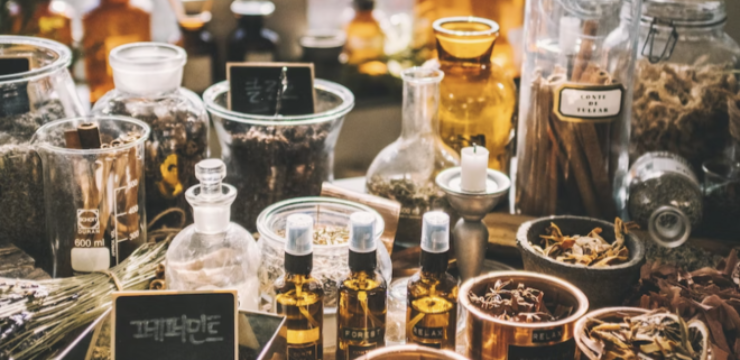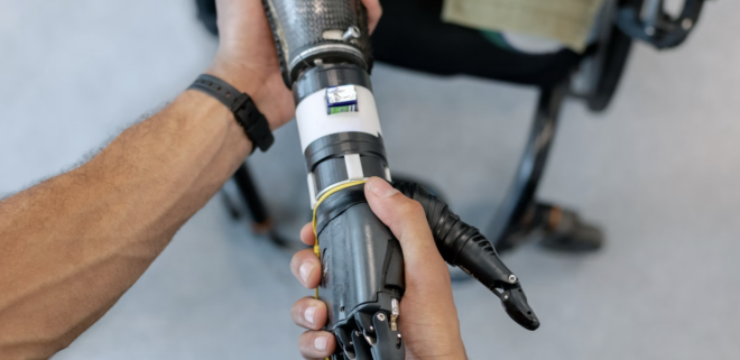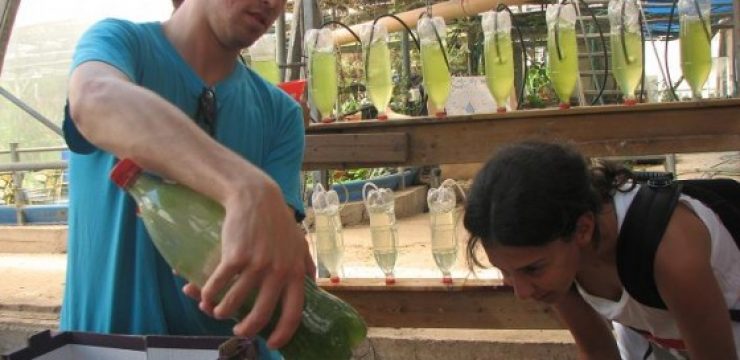A new study led by researchers at Washington University in St. Louis and the Missouri Botanical Garden has uncovered a surprising layer of diversity in tropical forests. Not only are the forests populated by a dizzying number of tree species, but each of those species takes a different approach to chemistry, increasing the array of natural compounds that provide important functions for the plants — and potentially for humans.
Read more
A man's whole face and eye has been a transplant success.
Read more
Suicide and suicidal thoughts are linked to sleep deprivation in teens: new study
Read more
The pharmaceutical sector seeks transformative strategies to stay ahead in an era marked by rapid technological growth and an increasing emphasis on environmental consciousness.
Read more
An electronic skin which can learn from feeling ‘pain’ could help create a new generation of smart robots with human-like sensitivity.
Read more
Make it your business to know if your supply chain is in short supply. The 50 minerals that create your best life.
Read more
Amit Savaia (left), went to Africa for three months to volunteer after finishing his first degree in science. With four other Israeli students from Israel’s Ben-Gurion University of the Negev, he helped build a computer platform to connect African farmers with their neighbors. What tugged at his heartstrings, though, was the problem of schistosomiasis, the […]
Read more
Green Prophets burn lots of calories trying to make the planet a better place, but you can’t do much do-gooding if you’re dead. I’ll share a day in my week as a cautionary tale (and offer a peek into Amman’s excellent, and sometimes culturally surreal, medical system).
Read more
Is it creepy or clever to peddle insurance against baby’s first diseases? Sure, new parents get showered with adorable gifts and well-intended advice, but then the downpour of unsolicited marketing arrives: for baby gear, for college saving plans, and now, in Jordan, for baby blood banking. An unusual building is rising in the desert outside Amman, […]
Read more
Despite the many wounds that cripple cooperation between the Israeli and Palestinian governments, Arab and Jewish teenagers work side by side to further algae research in Israel. Established in 2008, the Micro Algae Educational Project packs two important imperatives into one succinct program for high school students: ecology and social healing. Conducted in the Eco […]
Read more
An epidural could be the key to reducing PTSD in new mothers Before I gave birth, I was sure it would be all-natural. For the sake of my baby, and my back, I decided to not take an epidural. The tune changed when the contractions attacked me like a lion, giving me no-where to run. […]
Read more
Can growing and maintaining a healthy pair start in your garden? Tips for improving breast health without silicon. Call us trendsetters: here at Green Prophet, we’ve long been reporting on breast health as well as the environmental concerns women face with regards to proper care and nutrition of their curves. Now, with the recent news […]
Read more
“If God allows, we will hold our baby in our arms”. 21-year-old Derya Sert (right) and her doctor Omer Ozkan pose for a photograph before her medical operation Derya Sert is the 21 year old who had the world’s first successful womb transplant at a Turkish hospital. On August 9th, 2011, doctors at Akdeniz University […]
Read more
A Tel Aviv University researcher has found that drugs are contaminating the earth in more complex ways than previously thought The dangerous implications of chemicals on our health and the planet entered the public consciousness back in the 1960’s, and was influenced (in part) by campaigners such as Rachel Carson whose groundbreaking book ‘Silent Spring’ […]
Read more
Hayat Sindi holds up the postage stamp-sized invention that could save the lives of millions of people Born in Saudi Arabia, Hayat Sindi’s path into science may be rather untraditional for a Muslim women but it is there she has excelled and developed technologies which could improve the health of people living in the developing […]
Read more















